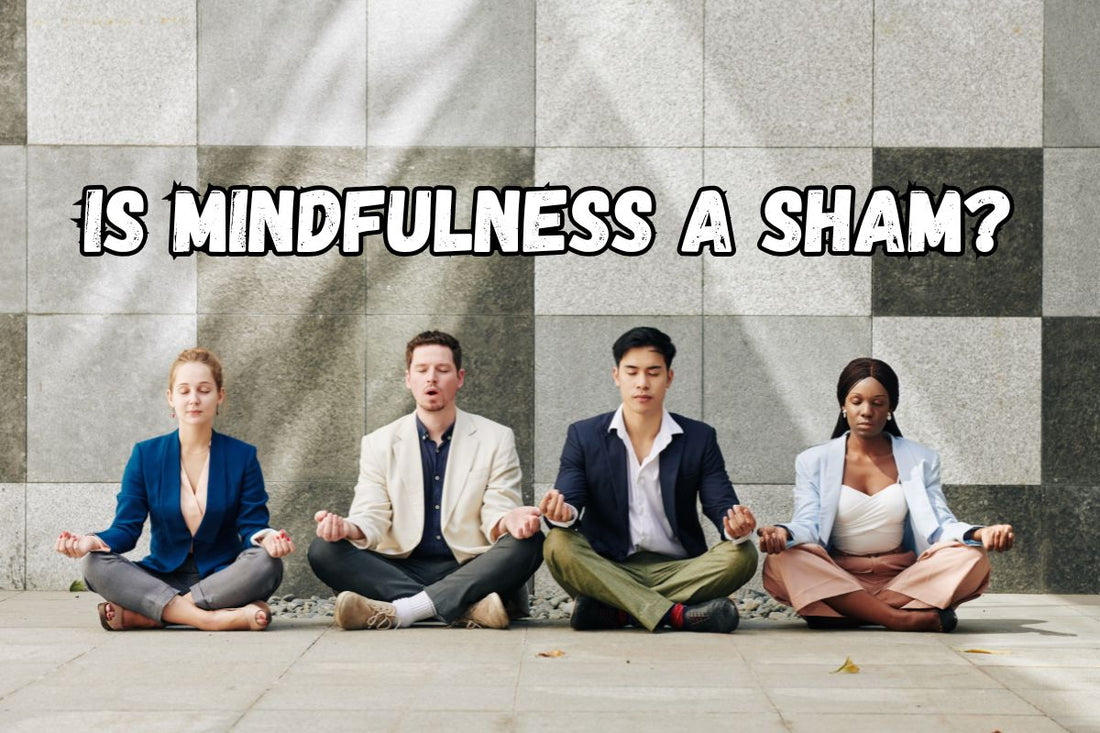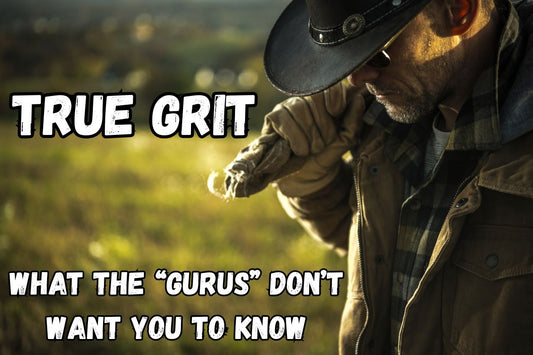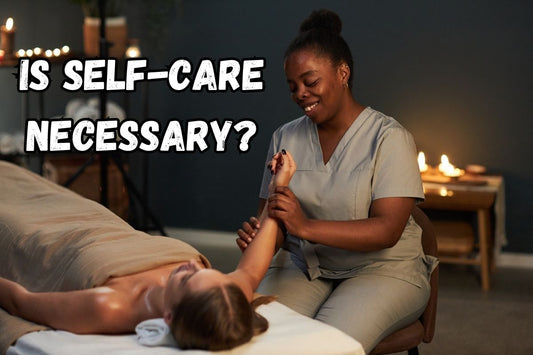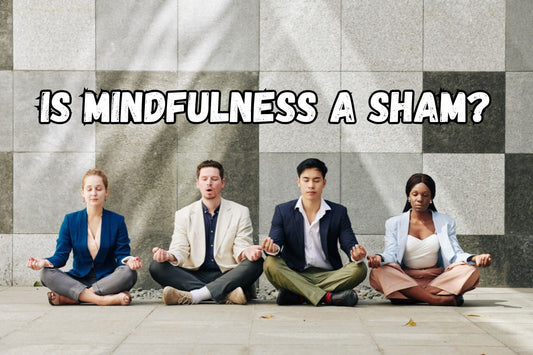 All You Need to Know About Mindfulness
All You Need to Know About Mindfulness
By Levi Stanford
TLDR: Key Takeaways on Mindfulness
- Mindfulness keeps you present – It helps you focus on the moment rather than dwelling on the past or future.
- It reduces stress and improves emotional regulation – Techniques like meditation and deep breathing help manage stress and emotions effectively.
- Enhances self-awareness and resilience – Mindfulness helps you understand yourself better and navigate challenges with ease.
- Boosts focus, sleep, and physical health – It improves concentration, promotes better sleep, and supports overall well-being.
- Anyone can practice mindfulness – Simple habits like mindful breathing, meditation, and being present in daily activities can make a big difference.

What is Mindfulness?
If, like me, you cringe at the mere mention of personal development buzzwords such as “manifesting” or “10x your life,” then you have probably found yourself wondering whether “mindfulness” is actually effective or just another bunch of gobbledygook nonsense designed for safe spaces. It’s unfortunate that someone might miss out on the benefits of something simply because of the negative assumption associated with a word.
The truth is, mindfulness simply means being “aware.” It’s all about being present in the moment, paying attention to what’s happening inside and around you without judgment. Instead of getting lost in worries about the past or future, mindfulness helps you stay grounded in the here and now.
Most people go through life with their subconscious in the driver’s seat, cruising on autopilot, completely unaware that their negative habits are running the show. Mindfulness allows you to turn off the subconscious autopilot so you can land the proverbial plane smoothly.

The Benefits of Mindfulness
Stress Reduction
Mindfulness is like having a personal trainer for your brain, but instead of squats, you’re learning how not to freak out when someone steals your parking spot. Mindfulness can help you manage stress by making you more aware of your reactions to challenging situations. Instead of getting overwhelmed, you learn to step back, breathe, and respond calmly. Techniques like meditation and mindful breathing can lower stress levels and improve your overall quality of life.
Improved Emotional Regulation
When we get cut off in traffic, when our toast comes out burnt, or, like me, when you blow off your arm, we all experience strong emotions like anger, sadness, or frustration. Mindfulness helps us recognize these emotions without letting them take over. By observing our thoughts and feelings, we gain control over how we react to situations, leading to healthier relationships, inner peace, and the avoidance of having our face all over social media in a viral video as we fail to punch someone’s car window out.
Enhanced Self-Awareness
When you practice mindfulness, you start to understand yourself better. You become more aware of your habits, thought patterns, and emotional triggers. This self-awareness allows you to make better choices and live a life aligned with your values and goals.
Improved Focus and Concentration
If you find yourself constantly distracted, mindfulness can help. It trains your brain to focus on one thing at a time, whether it’s a work task, a conversation, or simply enjoying a meal. If, like me, you struggle with ADHD, mindfulness can help you focus enough to remember to take the pill that helps you focus. This increased concentration leads to better productivity and efficiency.
Better Sleep Quality
Mindfulness can improve sleep by calming your mind before bedtime. If you struggle with racing thoughts at night, practicing mindfulness meditation or breathing exercises can help you relax and fall asleep faster. Unfortunately, it does not, however, at least to my knowledge, give you the power of selective hearing to block out the snoring that may also be keeping you awake.
Enhanced Physical Health
Studies show that mindfulness can lower blood pressure, improve digestion, and reduce chronic pain. However, it should be noted that merely being mindful of the treadmill collecting dust in your living room does not have the same effect as actually running on it.

How Mindfulness Empowers Us to Make Better Choices
Mindfulness gives us the power to pause before reacting. For example, instead of responding impulsively to a stressful situation, you can take a moment to assess your emotions and choose a healthier response. This self-awareness leads to better decision-making in all areas of life, including relationships, work, personal growth, and how to cover up murder. Just kidding, I’m just checking to see who actually reads this much of my hard work.

Cultivating Mindfulness
Be warned: once you read past this point, you can no longer use the excuse of “it’s just who I am” or “it’s just how I was raised” in response to your short emotional fuse. The truth is, mindfulness is a skill that takes practice, but anyone can do it. Here are some simple ways to incorporate mindfulness into your daily life:
- Mindful Breathing: Take slow, deep breaths and focus on the sensation of air moving in and out of your body. In your nose and out your mouth.
- Body Scan Meditation: No MRI machine required. Pay attention to different parts of your body and notice any sensations, tension, or relaxation.
- Being Present in Conversations: Listen actively without thinking about what you’ll say next. Truly hear what the other person is saying.
- Mindful Eating: Savour each bite of your food, noticing the taste, texture, and aroma.
- Nature Walks: Take a walk outside and observe the sights, sounds, and smells around you.
- Journaling: Write down your thoughts and feelings to process them with awareness.

The Role of Mindfulness in Personal Growth
Mindfulness helps us uncover limiting beliefs that may be holding us back. I know, “What’s with all the buzzwords, Levi?” Well, the truth is, we have negative beliefs about ourselves, and they are limiting our ability for personal growth. When we become aware of these mental blocks, we can actively work on changing them. This process allows us to create a more fulfilling life aligned with our core values, rather than what the most frequent narrative being pushed on our social feeds tells us we should be. It’s entirely your choice, but you can only consciously choose if you are mindful of the choice you are making.

FAQs About Mindfulness
How does mindfulness help with anxiety?
Mindfulness helps with anxiety by keeping you focused on the present moment instead of worrying about the future. It also allows you to observe anxious thoughts without getting overwhelmed by them.
Can mindfulness be harmful?
For most people, mindfulness is beneficial. However, for individuals with past trauma, mindfulness can sometimes bring up painful emotions. In these cases, working with a trained professional can be helpful.
What are the best mindfulness apps?
Popular mindfulness apps include Headspace, Calm, Insight Timer, and Smiling Mind. These apps provide guided meditations and exercises to help you practice mindfulness daily.
Will mindfulness help my sleep?
Mindfulness reduces stress and promotes relaxation, making it easier to fall asleep and stay asleep. Techniques like deep breathing and body scan meditation can be especially helpful.
How do I start practicing mindfulness?
Start with just a few minutes a day. Try focusing on your breath, doing a short meditation, or simply paying attention to your surroundings. Gradually increase the time as you get more comfortable. If you are self-conscious about practicing mindfulness and wish to avoid having to explain to a judgmental co-worker or family member what you’re doing, you can always find a private place to meditate, although, preferably not in the bathroom stall. I think, in some cases, a few smells and noises are okay to not be mindful about.

FAQs About Levi Stanford
Who is Levi Stanford?
Levi Stanford is a Canadian motivational speaker, comedian, and musician who inspires and entertains people through his work.
What topics does Levi Stanford cover?
Levi speaks on emotional resilience, personal growth, and overcoming challenges, often blending humour and music into his presentations.
How can I book Levi Stanford for an event?
For booking inquiries, visit the “Contact” tab in the above website menu or contact his team directly by emailing levi@levistanford.com
Does Levi Stanford offer coaching or workshops?
Yes, Levi provides motivational coaching and workshops on resilience, mindset, and personal development.
Where can I follow Levi Stanford’s work?
You can follow Levi on social media for insights, updates, and upcoming events.
Building emotional resilience takes time and effort, but it’s worth it. Start with small changes today, and over time, you’ll become stronger, more confident, and better equipped to handle whatever life throws your way.





